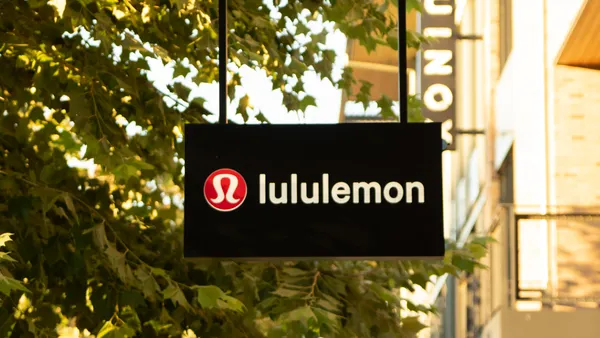Dive Brief:
-
Dyson has opened a flagship demo store at 640 5th Avenue in New York, according to the company’s Facebook page. The store opened Dec. 14, the company said in an email to Retail Dive.
-
The appliance company began opening branded locations in 2015 with a store in Tokyo. To date it runs locations in Paris, Moscow, Jakarta, London, Toronto and San Francisco, in addition to the new 5th Avenue location. The company has also run several "Dyson Supersonic Lab" pop-ups in the U.S. to demo a hair dryer, its first entry into the beauty space.
- Best Buy this summer also carved out spaces for Dyson shops of between 40 square feet to about 400 square feet in 90 stores, with specially trained experts to answer questions and assist with how products work or which products are best for customers' needs. Best Buy also features an "enhanced Dyson experience" on BestBuy.com.
Dive Insight:
The new tendency of brands to sell directly to customers — both online and in their own stores — is yet another challenge to retailers that specialize in those segments or have departments that do. "[C]onsumers are increasingly switching to buying directly from brands," GlobalData Retail Managing Director Neil Saunders told Retail Dive in an email earlier this year. "[A] a well-configured, focused brand can secure customer loyalty far better than a retailer selling a diffuse range of different products with little coherence."
That phenomenon is, to a great degree, the story of department stores. Over the past couple of decades or so, the term is increasingly a misnomer, as smaller retailers specializing in cosmetics, jewelry, home goods, furniture, toys and even auto parts and services — category killers all — have challenged department store sales. Now big-box retailers are being pressured as well, making private label merchandise a key potential differentiator.
"Department stores began losing departments to stand-alone discount 'commodity' retail formats starting in the 1970’s, with Toys R Us. The crippling trend has been steadily downward ever since," retail analyst Nick Egelanian, president of retail development consultancy SiteWorks International, told Retail Dive in an email last month, adding that e-commerce is responsible for a relatively small proportion of their decline. "Blaming department store woes on the internet, [misses] a 30-40 year pattern of store sales declines that began then."
Today, he adds, department stores retain three departments — apparel, cosmetics and housewares — which also happen to be the categories embraced by retailers like TJ Maxx, Ross, Home Goods and Ulta Beauty. Unlike department stores, those players are all enjoying brisk sales and are adding stores to their portfolios.
The advantages of brick-and-mortar browsing for retailers like Dyson are key, considering the ability to touch, feel and try out products ranked as the number one reason shoppers chose stores over buying online, according to the Retail Dive Consumer Survey. These findings, however, also showed that just 30% of consumers said they were more likely to shop for appliances and electronics in store as opposed to online.
For Dyson, the ability to demonstrate product performance is important, as the brand commands a premium price based on engineering. "The shop is an opportunity to prove to people that it really does work," company founder and inventor James Dyson said in New York last month.













